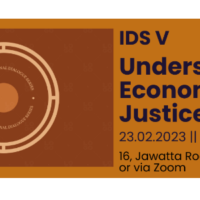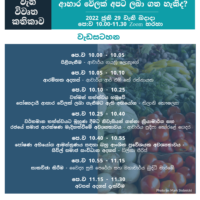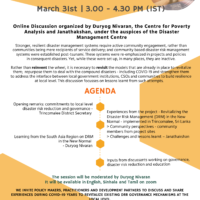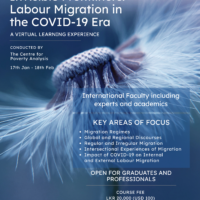Reflections on Post-War Recovery
24 Feb 2017 by Centre for Poverty Analysis (CEPA)

On 22nd February 2017, CEPA presented an Open Forum at the Lakshman Kadirgamar Institute, Colombo titled “Reflections on Post-War Recovery” focusing on perceptions of service delivery and governance among resettled communities in the North and East. The material presented was based on a 6-year research programme carried out by CEPA for the Secure Livelihoods Research Consortium (SLRC).
The forum featured longitudinal data and discussions from a panel survey presented by Dr Vagisha Gunasekera highlighting shifts, fluctuations and consistencies in livelihood and wellbeing outcomes of individuals and households, revealing some fairly striking rates of ‘churning’ in livelihoods, masked by pictures of average change. To describe what lies beneath this picture, rich narratives from a number of SLRC qualitative studies were also presented. Nadhiya Najab presented findings from a study on the political economy of violence focusing on women’s economic relations in post-war Sri Lanka, specifically looking at women’s engagement in the beedi industry in a village in Jaffna. Aftab Lall presented snippets from his study on how caste determines access to basic services/livelihoods and focused on caste and access to education and how caste identity was being reinforced in a marginalized community in the North. Nayana Godamunne shared some of her finding from her research on the state delivery of social protection programs with particular focus on perspectives of how the Samurdhi Program is being delivered to war affected communities in the North and East. These presentations revealed evidence from the quantitative and qualitative studies highlighting that war-affected communities in Sri Lanka are engaged in an endless struggle to secure livelihoods and rebuild their lives while positioned along many inimical social, economic and political fault lines.
The audience engagement was high based on the questions and comments received at the event, indicating that the SLRC research provides food for thought that endings, such as in post-war Sri Lanka remain open for continued critical scrutiny and probing interventions.








